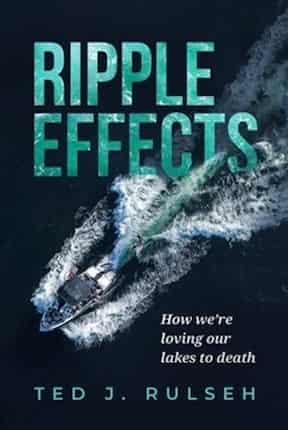
The subheading tells it all… “we’re loving our lakes to death”. This book should be required reading by every shore owner. The author describes how we’ve gotten to this point, what all the big issues are, and in the last chapter he poses some solutions. It’s published by the University of Wisconsin Press and you can get it from all major book retailers.
The go-to resource for lake dwellers and lake advocates of the Upper Midwest
Lakes are among the Upper Midwest’s greatest treasures and most valuable natural resources. The Great Lakes define the region, and thousands of smaller lakes offer peace, joy, and recreation to millions. And yet, in large part because of the numbers of people who enjoy the local waterways, the lakes of Wisconsin, Michigan, and Minnesota face numerous challenges. Invasive species, pollution, defective septic systems, inadequate shoreland zoning laws, and climate change are present and increasingly existential threats. We are, quite possibly, loving our lakes to death.
In his engaging and conversational style, Ted Rulseh details each of these challenges and proposes achievable solutions. He draws on personal experience, interviews, academic research, and government reports to describe the state of the lakes, the stresses they are under, and avenues to successful lakeside living for a sustainable future. Ripple Effects will be a go-to source for all who love lakes and who advocate for their protection; its driving question is summed up by one of Rulseh’s interviewees: “We love this lake. What can we do to keep it healthy?”
These are the chapter headings. As you can see, it covers the issues that we all care about.
- A Lake, a Family
- Cabin Country
- Paradise Discovered
- One Water
- The Trouble with Phosphorus
- Changing Lakescapes
- Zoning and Its Discontents
- Defective Septic Systems: How Big a Problem?
- In the Wake
- Stealth Invaders
- Preventing the Spread: Holes in the Safety Net
- Changing Climate, Changing Lakes
- Loons under Stress
- Pressure Rising
- Ways Forward: Forging Connections
Epilogue: Toward a Land and Water Ethic

